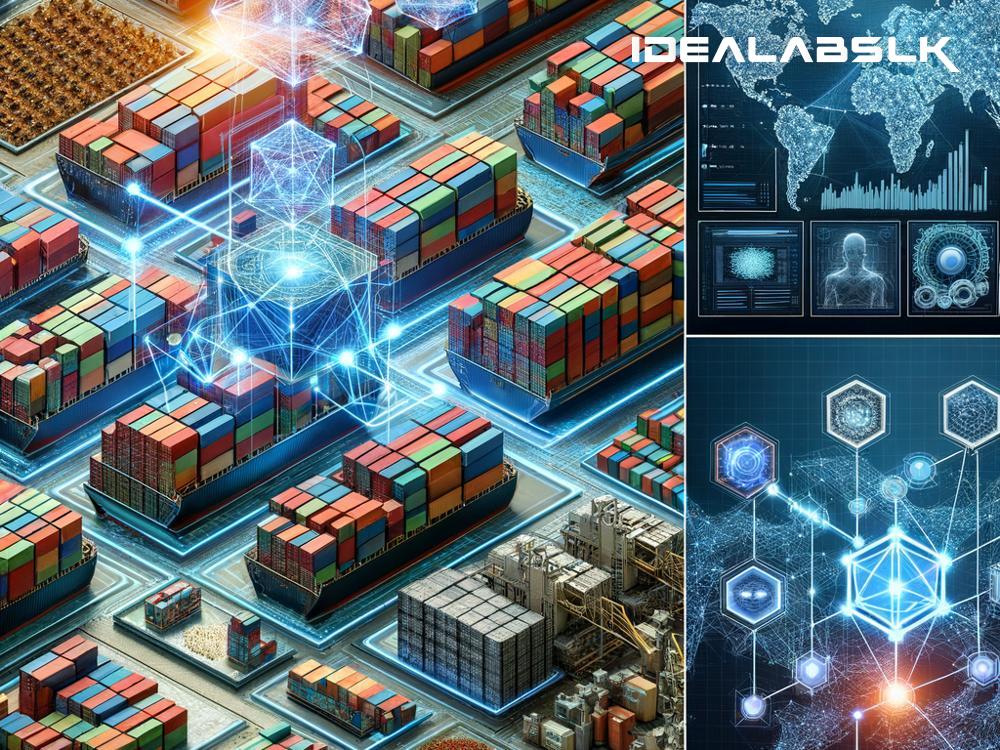AI and Blockchain for Streamlining Food Export Documentation: A Simplified Guide
The food export industry is a complex network of farmers, processors, regulators, and transporters, all working in harmony to move food from one corner of the globe to another. However, this harmony is often disrupted by one major challenge - documentation. The paperwork involved in exporting food products is extensive, involving certifications, quality checks, safety assessments, and various other regulatory requirements. But what if we could streamline this process, making it less cumbersome and more efficient? Enter Artificial Intelligence (AI) and Blockchain technology.
Understanding AI and Blockchain
Before diving into how these technologies can streamline food export documentation, let's break down what they are in simple terms.
Artificial Intelligence (AI) is like giving a computer a brain that can think, learn, and make decisions. It analyzes data, learns from it, and uses what it learns to make smart decisions.
Blockchain, on the other hand, is like a digital ledger or record book that is secure, transparent, and tamper-proof. Once information is put into a blockchain, it is very hard to change or hack.
How AI and Blockchain Can Help
Making Sense of Data with AI The food export process generates a lot of data - from the type and quantity of food being exported to the conditions in which they were produced and transported. AI can help make sense of this data. It can quickly analyze and validate documents, ensuring they are complete and accurate. For instance, AI can be used to automatically check if the food temperatures recorded during transport meet the safety standards or if all necessary certifications are in place. This reduces human error and speeds up the documentation process.
Automating Processes AI can automate repetitive tasks, such as filling out forms or updating records. This not only saves time but also reduces the chances of manual errors. It can also notify stakeholders of any missing or incorrect documentation, ensuring that issues are resolved promptly. This level of automation means that companies can focus more on their core operations, rather than getting bogged down by paperwork.
Blockchain for Security and Transparency One of the biggest advantages of blockchain is that it provides a secure and transparent way to store and share information. In the context of food export, blockchain can be used to create a tamper-proof record of the entire supply chain. This means every step of the journey, from the farm to the supermarket shelf, can be tracked and verified.
For example, if there's a health issue with a particular batch of food, blockchain records can quickly pinpoint where the problem originated, reducing the risk of widespread contamination. Furthermore, because blockchain records are transparent and permanent, they provide an added layer of trust among exporters, regulators, and consumers.
Streamlined Documentation By combining AI's processing power with blockchain's security and transparency, we can significantly streamline food export documentation. AI can process and verify documents at lightning speed, while blockchain ensures that these documents are secure and traceable. Additionally, since blockchain can be accessed by authorized individuals anywhere, it makes sharing documents with international regulators and partners easier and safer. This seamless integration reduces delays caused by paperwork, making the export process faster and more efficient.
Conclusion
In an era where efficiency and safety are paramount in the food industry, leveraging AI and Blockchain technology to streamline export documentation is not just innovative; it's necessary. These technologies offer a way to simplify a traditionally complicated process, saving time and reducing errors. As the world becomes increasingly digital, the adoption of AI and Blockchain in food exports could well be the standard, ensuring that we continue to enjoy a diverse variety of foods from across the globe safely and efficiently. The future of food export is smart, secure, and streamlined, thanks to AI and Blockchain.

